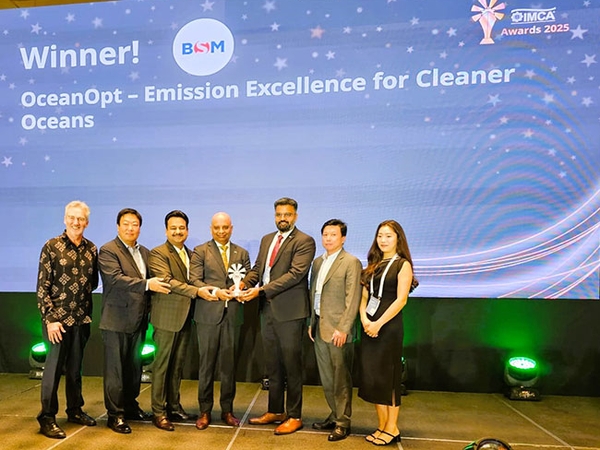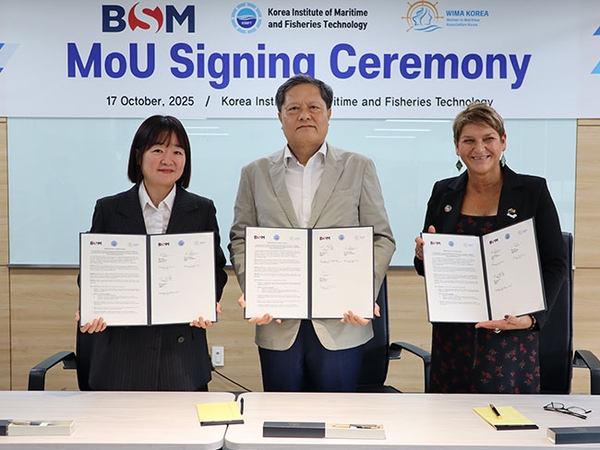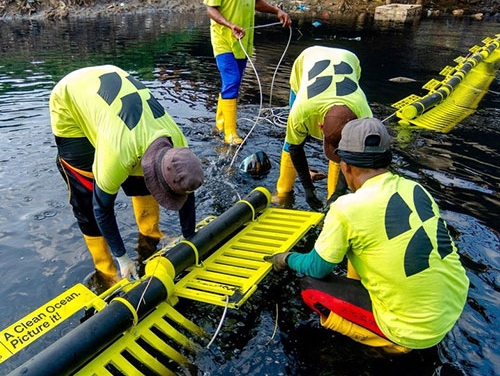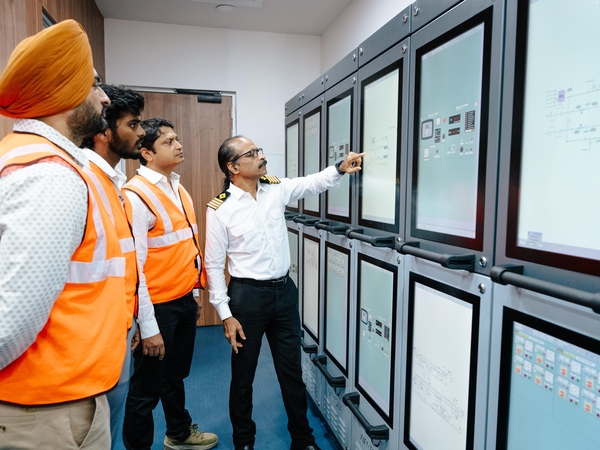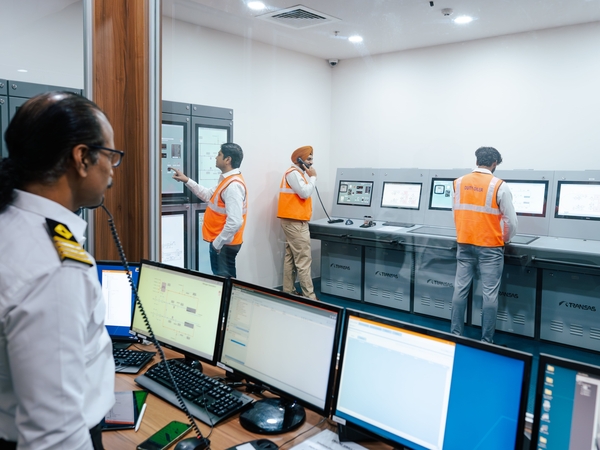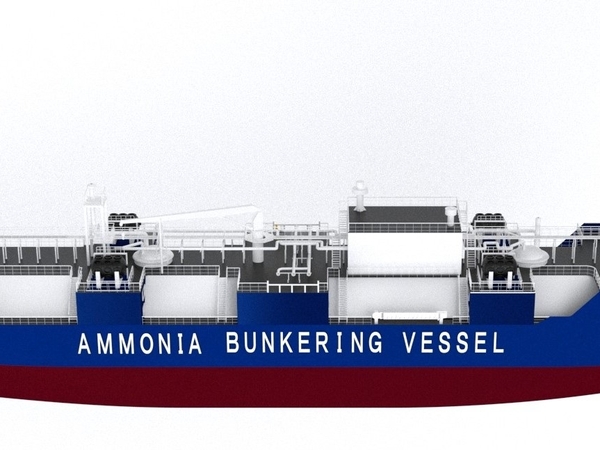
Theophanis Theophanous has been in the shipping industry for over 35 years, he is a graduate of the Merchant Marine Academy of Hydra, Greece and holder of a post-graduate degree in Executive Maritime Management from the World Maritime University, Sweden. His sea service was onboard dry cargo ships as well as tankers and primarily VLCCs.
After taking the decision to start his shore-based career and prior to his role as Managing Director of BSM Hellas, Theophanis joined the BSM Cyprus Fleet Personnel team where he stayed for 16 years, eight of which he fulfilled the role of Fleet Personnel Manager.
Although still acting as Fleet Personnel Manager in Cyprus, he participated in the establishment and launch of the BSM Hellas office, which was founded in May 2005 when BSM decided to expand into the prominent Greek shipping community. Theophanis Theophanous, took office as the Managing Director of BSM Hellas in 2008.
With BSM Hellas celebrating its 15-year anniversary this year, what are the main opportunities and challenges facing the company?
Since its establishment in 2005, when there were only a small number of ships under our crew management, BSM Hellas has grown considerably. Due to a proven track record of good performance as well as a wide range of services, our ship owners have gained trust and the BSM fleet has grown markedly, as have the number of customers with whom we work for. Our focus remains on supporting our clients by ensuring consistently high service quality and providing adaptive solutions where required. To achieve this, our efforts remain directed towards optimising synergies, close customer collaboration and open communication, to ensure we always fully match our customer’s needs.
How many vessels (full and crew) are managed by BSM Hellas? Have there been any recent deliveries or newbuilding orders?
BSM Hellas presently manages around 50 full and crew managed ships. There are two LNG Carriers entering management in the next month and we are full steam ahead implementing a strategically planned expansion for the remaining part of 2020 as well as for the upcoming few years. In 2021 alone, it is with delight that we can confirm another 10 ships will be joining our fleet, many of which are newbuildings and in the LNG field.
What are the core values that have defined the company’s strategy under your leadership?
As a family-owned business with a more than 135-year-old history, we naturally believe in Independence that is based on financial sustainability. In addition, each BSM business partner and employee must be treated with Fairness, in line with our reputation and the goal to achieve customer satisfaction. Entrepreneurship is of very high importance and with a range of initiatives we thus try to encourage innovation in our business processes, for the benefit of all external and internal company stakeholders. Without Responsibility, striving to be a leading maritime solutions provider would be impossible. For at all times, we must protect the vessels entrusted to us, our crew at sea and the environment in which we operate. Finally, it goes without saying that Our People Are Essential. BSM aims to be the employer of choice and we take pride in providing opportunities for continuous learning, career development and subsequent reward for good performance.
Greek shipowners have a particularly hands-on approach to ship management. Do you provide tailor-made services therefore, to meet the expectations of the Greek shipping market?
Indeed, this is very true. Owners here in Greece usually want to remain fully involved with all aspects of their vessel operations and do not prefer to outsource in entirety. In this sense though, we consider ourselves experts in catering to the needs of the Greek market and try hard to be fully flexible and supportive of this requirement. This, to us, is how resilient long-term partnerships are formed, whilst jointly striving to achieve efficient, smooth and operatively successful ship management.
What are the most important current global trends, affecting the shipping industry in Greece as well as your organisation?
The world is changing at a fast pace, more radically than ever before, and this is also reflected throughout the shipping industry. Consider the recent regulations for monitoring emissions, using sustainable energy, improving performance, controlling water pollution amongst others. There is also a technological advancement race, fuelled by the vast amount of data being gathered both ashore and onboard, with specialised sensors, and subsequent correlation in shipping operations through advanced modelling.
BSM strongly supports digitalisation and regards new technology as fundamental in supporting work processes to achieve speedier data access, reduction in error and improvement in transparency. For example, we work with the web-based Enterprise Resource Planning (ERP) system PAL developed by our sister company MariApps which allows us to proactively share fleet information with our customers and helps to eliminate manual reporting. With smartPAL’s LiveFleet module, ship owners have real-time access to their ships data, including the vessel’s position, its condition and certificates as well as the financial reporting and maintenance data. The continuous further development of smartPAL keeps this end-to-end customisable suite of modules fully in line with ship manager and ship owner needs. Moreover, via a central platform with web based and mobile compliant solutions, critical data is available anytime, anywhere, providing substantial operational control.
BSM’s Fleet Performance Centre, in parallel, strives to achieve ever improving reliability and optimal operations at sea. Utilising data derived from smartPAL, the fleet performance team’s focus is to identify trends and standards to achieve predictive maintenance as well as performance benchmarking, with the ultimate goal for our ship owners being maximised vessel reliability and availability, reduction in OPEX costs and optimised energy utilisation.
What are your market predictions/forecasts for ship management for the following 2-3 years?
In contrast to owning companies, industry fluctuations thankfully do not quite have the same impact on a third-party ship manager. Whether facing an upward market trend or a downward turn, ship management service provision remains fundamentally stable. At BSM, we consider ourselves an important collaborative partner, supporting owners to ensure maximised returns on each of their assets. Drawing always on our background as ship owners, we know first-hand that when ships are operated in top class condition with excellent performance results and strict adherence to each OPEX budget, then owners acquire the necessary return on investment to look to other opportunities that might be of interest.
Likewise, we have seen that management services can be useful for asset players, who favour spending their time monitoring when to enter and leave the market instead of dealing with day-to-day time-consuming vessel management.
The outlook for third party ship managers seems quite positive. With a younger generation of ship owners willing to embrace alternative ship management options and the needs of shipping funds and asset players as well, there is sure to be the chance for an increasing trend in constructive collaborations in the future.
The coronavirus pandemic has caused significant change and adaptation for many ship owners and managers. How has BSM managed to deal with this and do you think that shipping will be able to adapt to this new situation? Has everything been planned, or will we be moving forward on a step-by-step basis until an adjustment has been achieved? How do you keep up with day to day business?
Any slowdown in the world economy, for whatever reason, always has a subsequent impact on the shipping industry. Nevertheless, after coping with more than a decade of challenging times it is safe to assume that shipping companies have abundant experience to draw upon and are fully capable of adjusting and evolving. Ship owners in Greece certainly are adaptive and have an uncanny knack of turning hardships into opportunities.
During the early coronavirus phase, BSM moved swiftly and efficiently to create various contingency plans and tackle issues at all levels, whether ashore or onboard and our infrastructure ensured no business disruption whatsoever. Whilst our reputation and proven track record helped to ease any potential owners’ or charterers’ concerns with efficiency, adaptation and problem solving. BSM shall therefore continue to follow this successful strategy and remain true to our goals providing value for money to our clients with our unobstructed quality service, transparency and partnership.
A lot of seafarers are onboard and away from home for over 11 months now, due to the pandemic, and there are a lot of consequences due to that. How has BSM handled this issue and what have you done to get your crew moving again?
It was of utmost importance to keep communication flowing and our crew updated, to avoid frustration and morale from plummeting. Our fleet was directly addressed by the Schulte Group CEO Ian Beveridge, via our Corporate functions, Managing Directors, Fleet Managers and the Crew Managers of each Shipmanagement Centre as well. BSM also swiftly provided a “shipboard outbreak management plan”, including virus drills, to assist with any potential COVID-19 emergencies and guide our crew from very early on how to stay safe.
Seafarers, just like their shore-based families, friends and colleagues were obliged to follow restrictions; however, it was pleasing to see a variety of incentives implemented by our owners to make the time onboard more pleasant and reward their crew.
Now that crew changes are moving back towards a more normal status, there are still issues to be faced. One is the inherent need of the seafarers to spend a more extended period of time at home, once repatriated, making rotation planning and crew line up very challenging. Furthermore, a lot of support is needed for shore based crewing personnel who must strive hard to plan crew changes, faced with frequently altering tough restrictions, and crew that must be quarantined and medically tested, otherwise risk of infection can doom an entire crew exchange. Needless to say, that with increasing ticket, agency and transportation costs and the need on many occasions for vessels to detour or even be off-hire to effect urgent crew changes, the cost element to be faced is also posing an ongoing challenge.
As the pandemic creates significant, and unprecedented risks to safe access onboard, how has BSM reacted and do you think remote surveys will be the new norm?
The advancement and adaptation of digital technologies on board has made the task of remote inspections easier than ever before. It can be expected therefore, that this will now become more common in the future, supporting perhaps a reduction in physical attendance of surveyors. Most major authoritative bodies such as flag administrations, classification societies, vetting organisations have developed procedures for remote inspections that are also fast picking up pace. At BSM, we are fortunate that we have invested significantly in digital technologies and data collection over the last years and as such have been in an advantageous position to tackle the Covid-19 restrictions immediately and without any disruption to surveys and ship operations. Our ERP platform, smartPAL, has the ability to provide real time information to all involved parties as well as access to our safety manuals and reporting. Data collection and correlation is also instant, easy to use and information can be obtained without the need for physical presence. When other companies may have found remote attendance a daunting challenge, thanks to our digital dexterity and the support of the staff both onboard and ashore, BSM was lucky to be able to adapt straight away.
Another of the Schulte Group companies, Hanseatic Maritime Advisory Services Ltd, was also able to offer extensive support to clients during the pandemic. The ship owners and industry stakeholders utilising their inspection and advisory services were able to have access to highly experienced local Hanseatic Maritime professionals, so even with the impossibility of travel, inspections, audits and investigations for their ships could still be completed. Avoiding interruption in the cycle of ship visitations, whether using remote access or the services of local representatives as offered by Hanseatic Maritime Advisory Services, is of definite advantage for the continual smooth vessel operations.
As you are a ship manager, how do you maintain your clients’ confidence that their ships are being well maintained?
Confidence is achieved through transparency. Each and every of our actions as well as all any future vessel planning is undertaken though BSM’s Resource Enterprise Planning System (ERP) smartPAL and available online for owners to keep track when and where they need to. We also uphold a close daily co-operation with our clients and consider ourselves an extension of the owner’s own office rather than an external service provider.
One of your value-added companies Eurasia Travel Network, provides crew travel services. How has the pandemic affected this company and what do you feel will be the economic impact on the crew travel sector, will there be a recovery soon?
Realistically the pandemic has stretched business, in all sectors and of all sizes, to their limits. This may be in financial terms, or simply concerning the effort needed to maintain functionality while working remotely, plus the efficient co-ordination of work teams.
In the shipping industry though, no one has been hit harder than the crewing functions and this extends, as mentioned, to services from travel providers and agents as well. The normal work duties of the persons dealing with embarkation and repatriation of seafarers has increased exponentially and the end is not yet in sight. The businesses of Schulte Group companies like Eurasia Travel Network or Waypoint Port Services, are fully active and attending to the needs of their clients. The biggest challenge they face though, is the effort to retain the best cost levels for clients, when actual operational expenses are increasing due to COVID-19 restrictions and requirements. It is hoped that some level of normality can be reached soon, because inevitably companies that are not as well positioned and supported by a larger global network may certainly find that business viability may be hard to maintain.
Does shipping have what it takes to recruit the next generation of Seafarers and do you think the pandemic will be an additional obstacle in recruiting newer generations?
BSM train more than 5,000 crew each year in our four Maritime Training Centres and actively promote shipping and the seafarers’ profession across all spectrums. BSM welcomes young professionals, we co-operate with various universities and colleges, to support and enhance local education and be able to recruit the best possible cadets and junior officers for our managed fleets. Undoubtedly, seafarers who grow within the company have a deep understanding of the organisation’s culture and procedures. Our intention is therefore to create a constant learning path from entry level, as cadets or ratings, until each seafarer’s full potential is reached.
It is not clear if the pandemic will cause a long-term obstacle in recruiting newer generations or in fact increase demand, as economies suffer and job options shift. Shipping however remains a strong industry and likewise the image of a seafarer is one of expertise and responsibility. This message must be portrayed to the young generation, along with guidance that the role of a seafarer is a professionally fulfilling career option. Hopefully then potential crew candidates will be encouraged to join this exhilarating industry in which we work.
Women are increasingly prominent in executive roles in shipping, but as seafarers their presence remains minimal. What is the position of BSM towards the recruitment of female seafarers?
It is pleasing to see that there is more gender balance in senior positions held within our industry but regrettably there are still ongoing deliberations about women having equal opportunities despite the industry or sector. The truth is that you do not often come across female seafarers apart from some exceptions.
For attaining or holding down a job, personal skills should be the only criterion and gender should never play a role. In this sense, we can see, assisted by positive media attention as well, that our industry is moving forward in encouragement of women crew but in small steps. Organisations such as WISTA are surely of assistance in improving the gender balance; however, a faster pace needs to be adopted and more concentrated efforts of the professionals in the maritime sector.
Ladies need to be encouraged and naturally have the same opportunities as their male peers, since successful teams are built with the right mix of experience and expertise whilst also combining a blend of gender and backgrounds. That is why at BSM we are committed to a policy of diversity and equal opportunities in our employment practices and fully support the right of all employees to work in an environment which is free of any discrimination be it gender, nationality or related to any other disability.
Working from home requires adoption of drastic changes to our day-to-day business and schedules. What were the lessons learnt from this pandemic?
Prior to the COVID-19 pandemic BSM already had a well-established work from home policy, which allowed our shore-based employees to perform their tasks and duties remotely three times a month. Therefore, extending this to a more extensive work from home status was in fact very smooth. It has been really gratifying to see at one point when the entire BSM Hellas office was closed, that colleagues and departments really exerted their efforts to ensure proficient continuation of services, despite the unusual circumstances. The most important lesson learnt from the pandemic is how important communication is and that without a tight knit team and strong business network, keeping the full functionality of service provision without a glitch would have been impossible.
